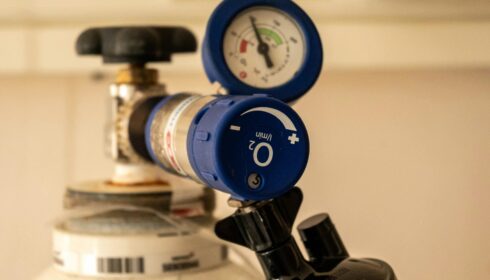Skrobik

Low-dose nocturnal dexmedetomidine prevents ICU delirium: a randomized, placebo-controlled trial
Skrobik Y. AJRCM 2018; 197[E Pub ahead of Print] DOI: 10.1164/rccm.201710-1995OC
Clinical Question
- In delirium free critically ill adult patients receiving sedation, does the addition of nocturnal low dose dexmedetomidine prevent delirium and improve sleep?
Background
- Delirium in critically ill adults independently predicts longer hospital stay, higher costs and mortality
- No pharmacological agent has been shown to prevent or treat delirium in critically ill adults
- The pathophysiology of ICU delirium remains poorly understood
- The data for dexmedetomidine does not support it’s routine use for sedation. Trials have shown it to be non-inferior to midazolam and propofol (MIDEX-PRODEX) for time at target RASS score but improved cooperation and communication (subjective secondary outcome). In terms of delirium reduction, some studies support it’s use and others show no meaningful patient centred outcome difference compared to alternative agents (DESIRE, DahLIA, Xian-Su)
- This study assesses whether low-dose nocturnal dexmedetomidine infusions would prevent delirium and improve sleep during the ICU admission
Design
- Two centre, double-blinded, placebo controlled randomized trial
- Registered with Clinical Trials.gov (NCT01791296)
- Consecutive eligible patients
- Computer generated randomization sequence using permuted blocks of 4
- Study drugs prepared in pharmacy in identical looking 50 ml bags
- Participants, clinicians and all study personnel blinded to treatment assignment
- Due to the lack of pre-existing similar studies and wide variability in the reported incidence of delirium, a sample size calculation was not done. Instead a convenience sample of 100 patients were enrolled
- Significance set at 0.05
- Intention to treat analysis
Setting
- 2 centres – 16 bed ICU in Canada, 10 bed ICU USA
- February 2013-January 2016
Population
- Inclusion criteria
- Adults admitted to intensive care
- Expected to require 48 hours or more of ICU care
- Receiving intermittent or continuous sedation (midazolam, lorazepam or propofol)
- Exclusion criteria
- Presence of delirium (Intensive Care Delirium Screening Checklist Score >/=4)
- History of irreversible brain disease consistent with severe dementia
- Presence of a primary neurological condition or neurological injury
- Acute alcohol withdrawal requiring treatment with benzodiazepines
- Inability to speak English or French
- History of hepatic encephalopathy or end stage liver disease (Childs-Pugh Class B or C)
- Heart rate </=50 beats per min or 2nd or 3rd degree heart block in the absence of a pacemaker
- Expected death within 24 hours
- Current treatment with dexmedetomidine or clonidine
- Inability to obtain informed consent
- Pregnancy
- 375 patients screened, 110 eligible for inclusion, 100 enrolled, 50 randomized to the intervention arm, 50 randomized to the control arm, 100 analysed
- Baseline characteristics (selected):Intervention v Control
- Age (years): 62 v 62
- Male gender: 31 v 33
- APACHE II score: 23.6 v 21.9
- Mechanically ventilated: 45 v 44
- Days in ICU before enrolment: 2 v 1
- Delirium risk score: 54 v 51
- Continuous IV fentanyl: 36 v 44
- RASS >/=0: 31 v 21
- RASS <0: 19 v 29
- Baseline characteristics (selected):Intervention v Control
Intervention
- Dexmedetomidine 0.1-0.7 mcg/kg/hr, by nocturnal intravenous infusion from 21:30 to 06:15 hours
Control
- Placebo 0.1-0.7 mcg/kg/hr, by nocturnal intravenous infusion from 21:30 to 06:15 hours
Management common to both groups
- Study drug infusion regimen
- Started at 0.2 mcg/kg/hr at 21:30 hours with target RASS -1
- If the RASS score was >/=0 then study drug was increased by 0.1 mcg/kg /hr every 15 minutes to achieve target RASS
- Maximum infusion rate 0.7mcg/kg /hr
- If the RASS score was </=2 the study drug was decreased by 0.1 mcg/kg /hr every 15 minutes to achieve target RASS
- Infusion rate was halved at 06:00 hours and discontinued at 06:15 hours
- On subsequent nights, the infusion was commenced at 21:30 hours at the same rate as the preceding morning
- Study medication was administered nightly until either ICU discharge or adverse events occurred requiring the medication to be stopped
- Additional medication
- Prior to starting the study drug infusion, all current sedative dosages
were reduced by 50% - Scheduled medications prescribed solely with the intention of improving sleep (e.g. melatonin, trazadone) were discontinued
- Administration of all opioids, oral benzodiazepines, acetaminophen and non steroidal anti-inflammatories were not changed
- Agitation was treated with as needed intravenous midazolam (1-5 mg iv q 1 hrly) while the study drug was titrated upwards by 0.1 mcg/kg/hr every 15 minutes
- Concurrent sedative dosages were only increased above the 50% dosage if the RASS was >/=2 despite reaching the maximum study drug infusion rate and the maximum as needed dosage of midazolam
- Acute pain was treated with as needed fentanyl (25-100mcg q 1 hrly)
- Antipsychotic medication was permitted at the clinician’s discretion for delirium management, if required
- Prior to starting the study drug infusion, all current sedative dosages
- Additional supportive management
- All ventilated patients were placed on AC (assist control), PC (pressure control or PAV (proportional assist ventilation)
Outcome
- Primary outcome: Proportion of patients who remained free of delirium during their ICU admission was significantly greater in the intervention versus the control group
- Absolute Risk (AR) = 40/50 (80%) v 27/50 (54%)
- Relative Risk (RR) = 0.44 (95% CI 0.23-0.88), p = 0.006
- Fragility Index = 4
- Secondary outcomes:
- Significant difference in number of ICU days free of delirium
- median [IQR] 8[4,11] v 6[2,12], p=<0.001
- No significant difference in:
- duration of delirium until resolution for at least 12 hours
- sleep quality as measured by the Leeds Sleep Evaluation Questionnaire (administered each morning at 9:00 hours if the patient had a RASS >/=-1 and did not have delirium)
- Significant difference in number of ICU days free of delirium
- Post-hoc analyses:
- Significance difference in:
- Steroid usage: 22/50(44) v 8/20(16), p = 0.02
- Propofol dosage (mcg/kg/min): 22.6 v 34.9, p < 0.0001
- Proportion of total study days with coma: 70/580 v 103/53; p=0.0009
- Proportional of nocturnal hours spent at target RASS score: 55% v24%, p < 0.0001
- Number of RASS assessments conducted nightly: 4.4 v 9.2, p = 0.002
- Incidence of severe pain: 40% v 66%, p = 0.04
- Need for fentanyl infusion: 76% v94%, p = 0.02
- No significant difference in:
- Maximum nocturnal pain level
- Antipsychotic usage
- Oral analgesic usage
- Ventilated days
- Length of stay in ICU
- Length of stay in hospital
- Early mobilization
- Adverse events
- ICU mortality
- Significance difference in:
Authors’ Conclusions
- Nocturnal administration of low dose dexmedetomidine in critically ill adults reduces the incidence of delirium during their ICU stay; patient reported sleep quality appears unchanged
Strengths
- Clinically relevant outcomes
- Both centres had a well established delirium assessment practices in place before the study commenced
- Good baseline similarity between the groups
- Robust measures were used to ensure randomization, allocation concealment and blinding of participants and study personnel
- Clearly reported measures to ensure equality of ancillary sedation and ventilatory treatments between the groups
- Intention to treat analysis
- No losses to follow up
- Sought and reported important adverse events
Weaknesses
- Risk of imprecise effect estimate
- Small number of participants and small number of total events (67 delirium free days in total)
- Likely underpowered – lack of sample size calculation together with small number of participants enrolled, increasing the risk of overestimation of the effect estimate and reducing the positive predicative value of the results
- Multiple outcomes measured (several post hoc) without a report of adequate statistical adjustment for multiple data testing, increasing the risk of false positive results
- Risk of performance bias
- Study was conducted over a three-year period, during which time personnel, practices and adherence to trial protocol standards may have varied in their application and consistency
- Risk of detection bias
- Timing and frequency of delirium assessments were likely inconsistent as patients were ‘evaluated for delirium at least once during a 12 hour time period’ implying that some patients may have been evaluated more than once and some may have been evaluated during the evening time when the risk delirium was greater, introducing the possibility of an unequal distribution of confounding factors influencing both delirium risk and detection
- Limited external validity
- Only 26% of screened patients were enrolled due to reasonable but restrictive exclusion criteria
- Only two center’s participated limiting the degree to which results can be extrapolated to other center’s
The Bottom Line
- The reported results of this study are promising but are limited by risks of imprecision and bias and restricted external validity
- With increasing age and comorbidity of critically ill patients we can anticipate a greater incidence of delirium, underscoring the need for larger well powered studies investigating the role of dexmedetomidine
- I will continue to use dexmedetomidine for short periods in those with or at particularly high risk of delirium but will await the results of larger studies before using it routinely and regularly for delirium prevention
External Links
- [article] Low-dose Nocturnal Dexmedetomidine Prevents ICU Delirium: A Randomized, Placebo-controlled Trial
- [further reading] Sedation and Delirium in the Intensive Care Unit ,NEJM
- [further reading] Dexmedetomidine and Delirium in the ICU, ATM
Metadata
Summary author: Imelda Galvin
Summary date: 19th March 2018
Peer-review editor: Steve Mathieu




Where in the article does it show the results for “duration of delirium until resolution for at least 12 hours”?
Bob… thanks for your comment. Let us take another look and we’ll get back to you soon.
Hi Bob ,
Sorry for the late reply . This outcome is reported in Table 3 of the manuscriptI
CDSC score when delirium first diagnosed
Duration of first delirium episode, days
Dex Group – 2.0 [0.8-2.7]
Placebo Group – 2.2 [0.7-3.2]
P Value 0.73
I hope this answers your question
Imelda
Both dexmed and placebo arm patients had their sedation halved at night, and placebo patients had their sleeplessness treated with escalating doses of placebo. Placebo patients spent 45% of their night hours awake (RASS 0-1) compared with 19% for the dexmed patients.
Well, now we know that halving sedation at night increase agitation and sleep disturbance (which are components of the chosen outcome measure, the ICDSC score).
This an appalling study that harmed control arm patients, and it is no surprise that it was funded by Hospira.